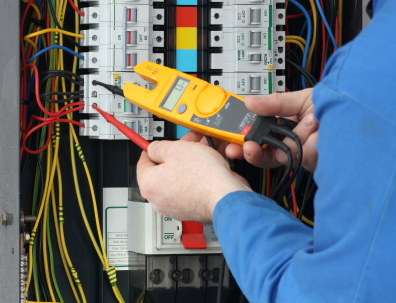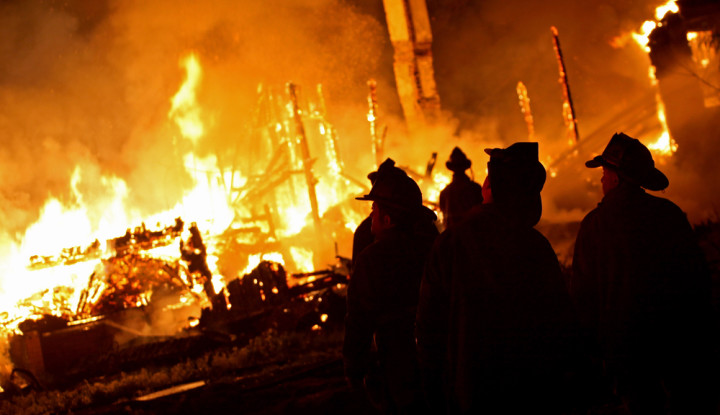ELECTRICAL SAFETY TIPS FOR OLDER HOMES
Electricity has become such a standard part of our daily lives that it is often taken for granted, but electrical failures are a leading cause of home fires every year. Homes with aging electrical systems are at increased risk for electrical fires. It’s important to note that all electrical work in your home should be performed by a licensed electrician in accordance with local and national codes. Follow these safety tips to identify and prevent electrical hazards.
Reasons to Get an Electrical Inspection
Your home is 40 years old or older
You purchase a previously owned home
Your home has undergone a major renovation
You have added major new appliances in the last 10 years
Warning Signs
Frequent problems with blowing fuses or tripping circuit breakers;
A tingling feeling or slight shock when you touch an appliance
Outlets and/or switches that are warm or make crackling, sizzling, or buzzing noises
Flickering or dimming lights.
Circuit Breakers and Outlets
Consider having your circuit breakers replaced with arc fault circuit interrupters (AFCIs), which provide enhanced electrical fire protection by detecting dangerous arcing conditions.
Make sure all electrical panel circuits are properly labeled. Always replace fuses or circuit breakers with the correct size and amperage.
Use ground fault circuit interrupter (GFCI)-protected outlets in areas where electricity is near a water source, like in the kitchen and bathroom.
Every month use the TEST buttons to check that GFCIs, AFCIs, and smoke alarms are working properly.
Routinely check cords, outlets, switches, and appliances for signs of damage. Do not use damaged electrical devices.
Do not overload outlets with too many devices or appliances.
Cords, Plugs, and Lights
Do not use extension cords on a permanent basis, and never use them with major appliances.
Never run electrical cords under rugs or carpets.
Do not pinch cords under furniture or in windows/doors.
Always use light bulbs that match the recommended wattage on the lamp or fixture

ELECTRICAL INSPECTION
Anytime Electric will thoroughly inspect the electrical of your home or office to ensure that it is up to St. Louis electrical code compliance and to make sure it is safe to inhabit. Electrical inspection is must if you are buying or selling your home.
we want you to feel safe and trust the electrical in your home or office. Last thing you would want is an electrical fire or for the electrical to damage any electrical devices or appliances
Electrical Inspection Provides the Following Services
Electric Inspections
Electrical Repair
Electrical Troubleshooting
Electrical Safety Inspection
Home Electrical Inspection
Residential Electrical Inspection
House Electrical Wiring
Electrical Code Inspection
Home Wiring Troubleshooting
Wiring Inspection
Wiring Testing
Electrical Systems

ELECTRICAL SAFETY TIPS TO HELP PREVENT ELECTRICAL FIRES
Have all electrical work done by a qualified electrician.
Qualified electricians are trained to install all electrical outlets and wiring to meet building codes and standards. They will make sure all fixtures are installed properly, and a qualified electrician will be able to see a faulty outlet from a mile away.
When you are buying or remodeling a home, have it inspected by a qualified electrician.
Once again, a qualified electrician will be able to properly inspect all electrical outlets, installations, and fixtures. It is better to have your home inspected by a professional than by a third-party with a limited electrical installation education.
Only plug one heat-producing appliance into a receptacle outlet at a time.
Heat-producing appliances include coffee makers, toasters, space heaters, or any other appliances that produces heat. Reduce fire hazards by only plugging in one of these appliances into the outlet at a time, and be sure to unplug the appliance after use.
Major appliances should be plugged directly into a wall receptacle outlet.
Major appliances could be refrigerators, dryers, washers, stoves, or air conditioners. Extension cords and plug strips should not be used because they are not meant to carry the large loads of these major appliances. If needed, avoid a fire hazard by having a qualified electrician install wall receptacle outlets closer to your major appliances.
Use Arc fault circuit interrupters (AFCIs) that are designed to shut off electricity when a dangerous condition occurs.
Arc faults are unintended arcs created by a current flowing through an unplanned path. The arcs create high intensity heat that result in burning particles which could easily ignite any surrounding material, such as wood framing or insulation. Having an AFCI will definitely help prevent a house fire at the hand of an arc fault

Electrical safety tips every homeowner should know
Electricity is something we don’t think about much. In fact, we take for granted that it is there for us when we need it. Most importantly, we rarely consider the “dark side” of electricity. If not respected, electricity can injure you severely, or even kill you. Let’s take a look at ways we can keep our relationship with electricity safe and productive.
The best way to protect children from electrical injuries is by preventing them from being able to insert anything into outlets. There are several ways to do this, from little plastic plug caps to complete outlet covers.
However, the best way to keep little ones (and everyone else) safe is to install tamper resistant receptacles (TRRs). They look like normal receptacles, but they are equipped with spring-loaded shutters that block the slots and prevent objects from being inserted. When a real plug is inserted, the springs are released and the plug slides in smoothly. The trick is that an electrical plug compresses both springs at once. However, if a child inserts an object into one opening, the springs do their job and the object does not make contact with electricity.
Are TRRs expensive? Not at all! They cost just a bit more than regular plugs. This one’s a no-brainer! Replace all your outlets with TRRs. If you’re not comfortable doing it yourself, call a licensed electrician. It’s a small price to pay for the safety of your little ones. Click here to watch a video about how TRRs work.
Keeping Cool!
Electrical outlets and switches should be cool to the touch and tight. If they feel warm or loose, emit a burning smell, or make a crackling noise, go to your electrical panel and shut power to that breaker immediately. Replace the switch or outlet before a fire or injury happens.

Home Electrical Safety Tips
Homeowners always strive to keep their family and property safe from accidents. With so many different systems and appliances to consider, there are many things to be mindful of when securing your home. Electricity is one of those things. Check out some of our tips own electrical safety tips to keep your home and family safe!
Don’t Overload Outlets
Plugging too many items into outlets is the cause of many house fires. Outlets are designed to handle a certain amount of current. Power strips or extension cords are often used to allow several different electrical items to pull power from one outlet. If the outlet is overloaded, it can cause issues with the breaker box. In the worst cases, outlets can spark and start a fire. Keeping outlet load at a reasonable level is one of the electrical safety tips that can save lives.
Water and Electricity Don’t Mix
One of the primary electrical safety tips that everyone should know is that water will conduct electricity. Many unsuspecting people have been shocked by touching their appliances with wet hands, or when using electronic items too close to water. Having an outlet by the kitchen sink additionally increases this risk, so be careful.
Ground Fault Circuit Interrupters (GFCI)
GFCI outlets are the safest and most recommended electrical outlets for any room that has running water. They’re also great when you want to make the room child-proof. If an outlet gets wet, has a foreign object inserted into it or if it is overloaded, a GFCI will cleverly detect the power surge and disable the outlet.
Electrical Cord Safety
Be mindful of both the power cords on appliances as well as of any extension cords. Here are a few things to consider when dealing with cables.